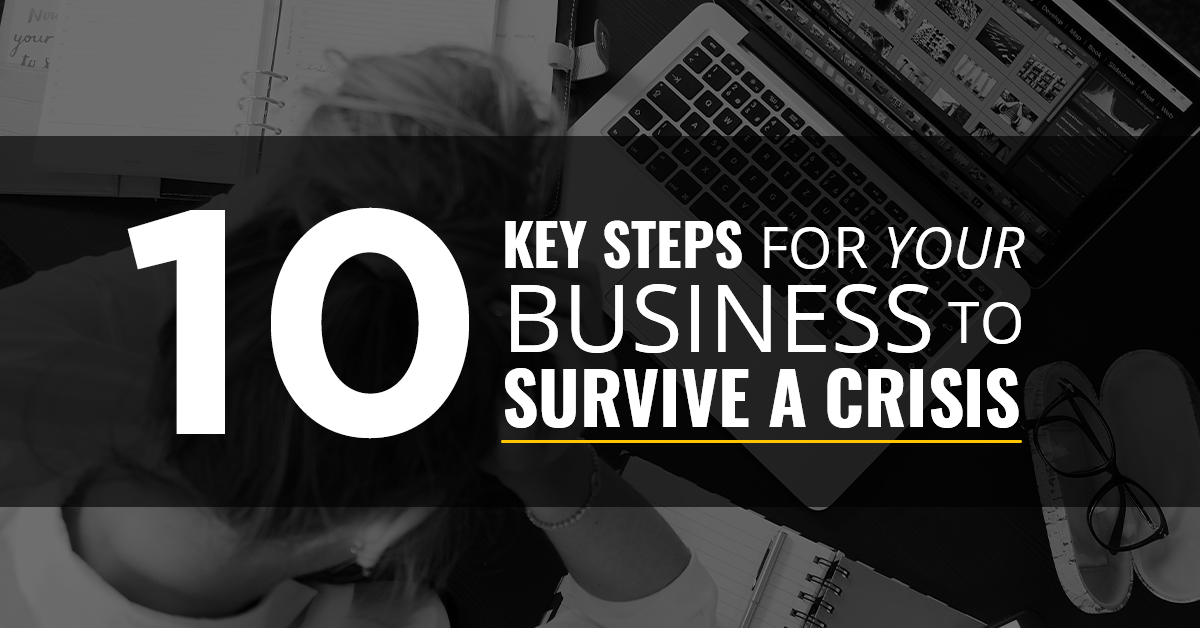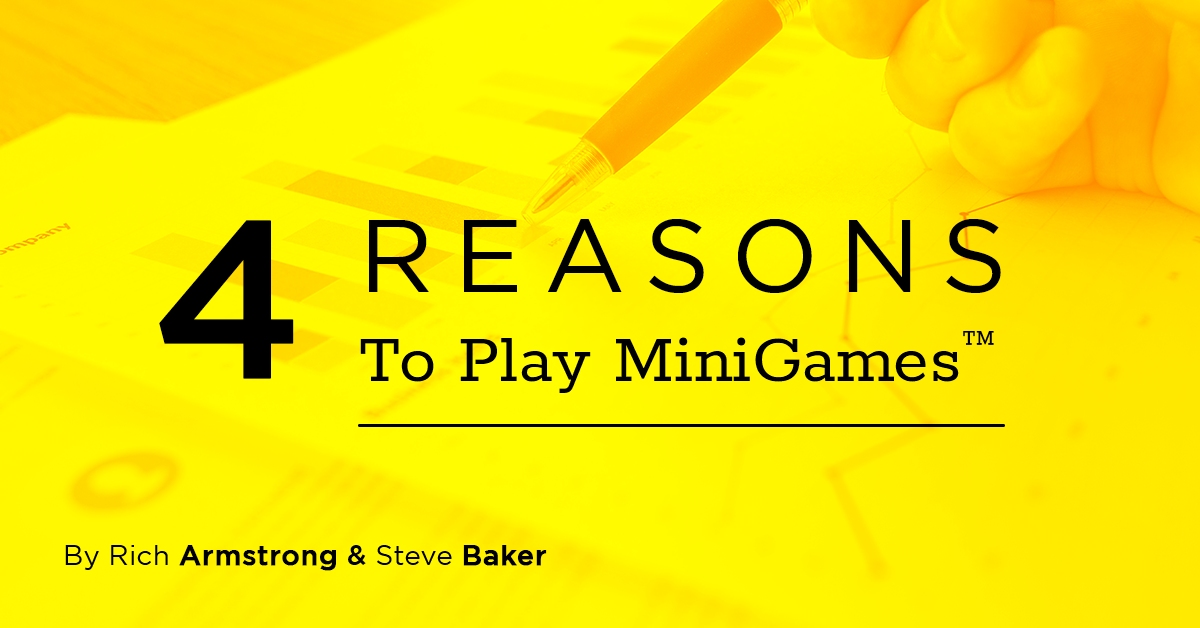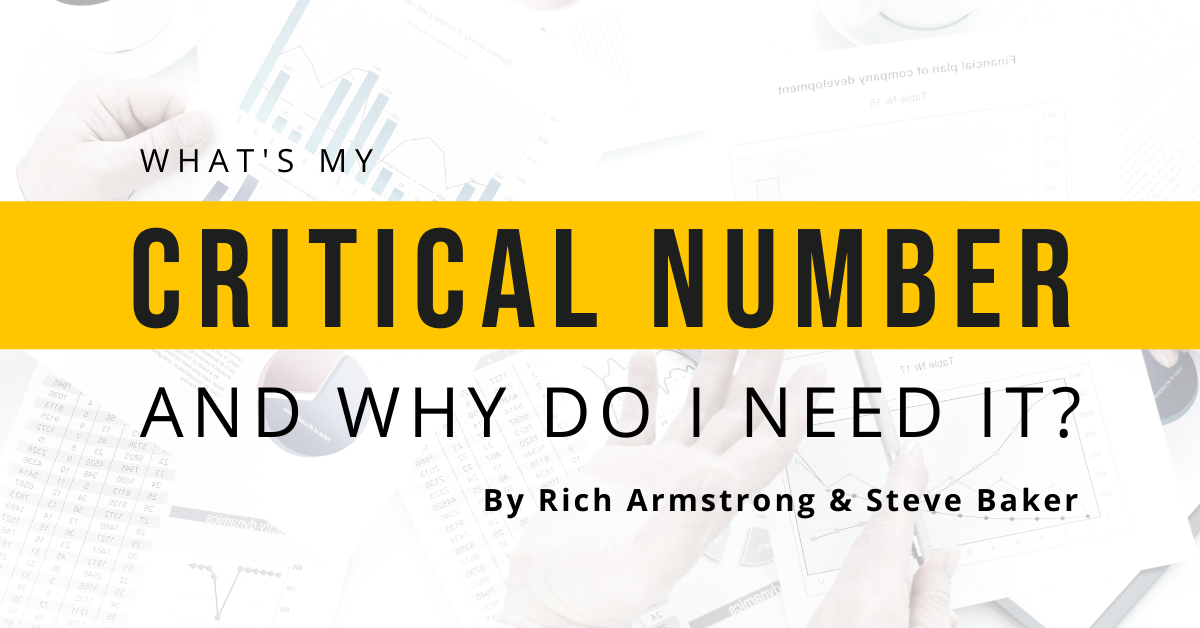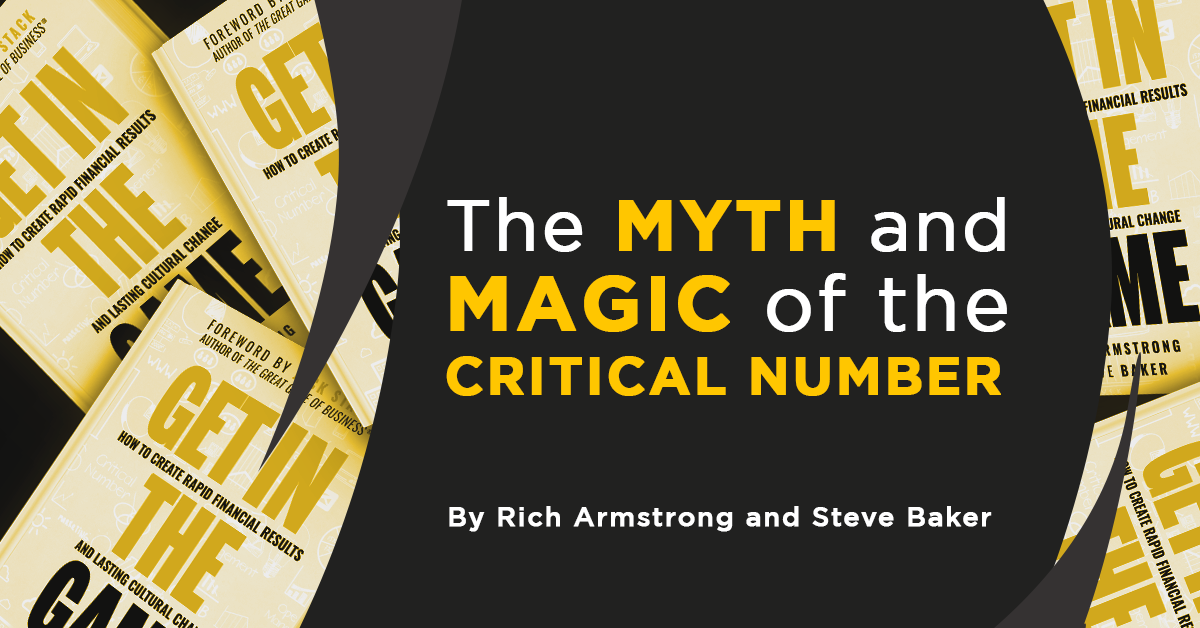High-Involvement Planning™, or ‘H.I.P.’, has been critical to SRC’s sustainability of The Game and its long-term financial success. H.I.P. has kept us focused and committed to The Game, primarily because it keeps it fresh and exciting by changing things up, year after year. It redefines our Game each year, with new Critical Numbers™, new financial targets, new challenges to conquer, and new goals to achieve. H.I.P. is also where we leverage the business know-how we have worked so hard to create. We use the collective knowledge of our team to raise our level of thinking from 90-day MiniGames™, to annual bonus plans, to 5 and 10-year visions for the company. The result of High-Involvement Planning is a vision—and a specific plan to achieve the vision.
Read More
Those of you who have already identified your Critical Number™ (company-wide goal) and the drivers that go along with that goal, will find that MiniGames™ are a great way to bring a laser focus to create small, everyday wins that put you that much closer to the big win. If you, are new to Great Game you might start learning more about how to identify your Critical Number.
Read More
Jack Stack, CEO of SRC Holdings, is an early riser. It comes from a lifetime of working in factories. But these days, in the middle of the coronavirus crisis, Stack is getting even less sleep than normal. “My day starts at 4:30 a.m.,” he says. Stack, like most business leaders these days, is trying everything he can think of to help keep the people who work at all divisions of Springfield Remanufacturing Company (SRC) safe and its factories running. It includes coming up with contingency plans to retain SRC’s employee-owners even if the factories are forced to shut down. Survival, to say the least, is a stressful job.
Read More
Once you’ve seen the transformational power of The Great Game of Business®, your team will begin to grab onto the gamification aspects; and along with it, the language. Words like Huddles and scoreboards will become part of the vernacular of your organization. To us, MiniGames™ are a powerful way to describe short-term, self-funding incentive plans that will make a huge impact on your organization in 90 days or less. They are designed to affect a change, reinforce business training, build teamwork, and develop a winning attitude—all of which lead to success for both your company and your people.
Read More
If you’ve watched the movie National Lampoon’s Christmas Vacation, you probably remember the failed “Jelly of the Month” bonus program. Picture Clarke W. Griswold daydreaming about the pool he couldn’t afford, based on a bonus he was simply expecting to get. Did the bonus make him work harder? Did it make him feel good about his job? Feel more connected to the goals of the company? No way! The bonus was seen as an entitlement; it was not intended to motivate behavior in any way. Most bonus systems for employees are disappointing because they’re a mystery, they’re unpredictable and they’re never, ever enough. So what can you do? In this article, we'll share the building blocks of an effective bonus plan. There’s no more powerful way to engage, motivate and involve people in their everyday work, their own goals, and the goals of the organization. Here are the steps you need to take in order for your bonus plan to be most effective:
Read More
Too many organizations get into trouble because they don’t have a proper planning structure. Even companies with a planning rhythm often only plan for what they expect to happen and the business they expect to deliver. In our experience, life (and business) is “like a box of chocolates”, you really can’t be sure what you’re going to get next! So, how do you prepare for the unexpected? What’s your backup plan? In business, you need to prepare for surprises in the marketplace by having a robust, proactive, and continuous contingency planning process. By business contingency planning, we mean a proactive process of planning for both the short-term and long-term security of your company. Our definition of contingency is a product or service that has already been researched, developed, and cost-justified, and can be activated on very short notice. It’s a key part of your sales planning process. So, what would you do if 10% to 20% of your revenue suddenly disappeared at this moment? Would you be ready to activate contingencies—a plan B?
Read More
Anthony Wilder is a full-service, custom architecture, construction, and interior design provider founded by the husband-and-wife team of Anthony and Liz Wilder. The Wilder team has been creating award-winning projects in and around the Washington, DC, metropolitan and tri-state area for more than twenty years. Back in 2006, the company was setting records in helping their customers’ dreams come true as the housing market boomed. Revenues were way up, and the firm had built up a two-year pipeline of backlog work to come. Everything was going great, and as the old saying goes, “Why fix something that isn’t broken?” And then the recession hit.
Read More
Right now, there is at least one financial or operational number in your company, something right at the heart of your business that, if improved in the short term, would have a dramatic effect on your business. Does everyone in your organization know what that number is, and how important that number is to the success of the business? A Critical Number™ is: ‘The One Thing’ that, at any given time, is going to have the greatest impact on your business. ‘The One Thing’ you must achieve – or nothing else you achieve really matters much. ‘The One Thing’ that clearly defines winning! Critical Numbers vary from business to business and industry to industry. They change and evolve over time depending on business conditions and strategic goals. So how do you know what to select?
Read More
If you are reading this and haven't already "opened the books" to share company financials with your employees, my guess is it's because you are scared. What are your real concerns about open-book management? Financial transparency in business is a concept so new, so counter to the way business has always been done, no wonder it scares people. Just the thought of opening the books is followed by a whole list of what-ifs. The thing is - it's not actually that scary when you break it down. Here are our answers when people hit us with the what-ifs:
Read More
Imagine a number, that if identified, would represent the single most important thing in your life; the one thing that would change everything. Whoa. That would indeed be awesome. But there’s more to it than that. There’s myth and magic that surrounds what we call the Critical Number™—that one operational or financial metric that represents a weakness or vulnerability that impacts the long-term security of the business. This clearly defined, company-wide goal will indeed change your business. And yes, it will change your life. But the Critical Number is not magic.
Read More

.png)















.png)




-5.png)
.png)
